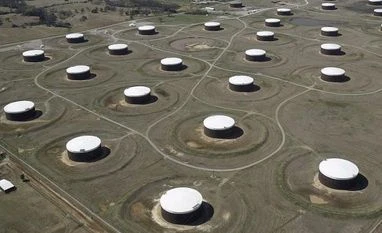Africa is finally seeing the benefits from the recovery in crude prices as companies ramp up drilling from Algeria to Namibia.
The rigs are returning and wildcatters are getting excited again after a years-long hiatus during the oil-price slump. From majors like Total SA to independents like Tullow Oil Plc, companies are snapping up exploration rights and doing deals.
“When you go for business development, trying to acquire licenses or make partnerships in West Africa, you can sense the competition,” Gilbert Yevi, senior vice president of exploration and production for Sasol Ltd., said in an interview in Cape Town. “It’s like a new California gold rush.”
Just a year ago Africa’s upstream was a very different story. At the continent’s biggest oil and gas conference, crude seemed like it may just hold at $50 a barrel over the long term. Beyond the activity of Africa-focused explorers like Tullow in Ghana, exploration activity in most countries was in a rut.
But as Africa Oil Week returns to Cape Town on Tuesday, nations throughout the continent are planning to sell exploration licenses or move ahead with major projects.
And the prize -- for both companies and countries -- could be huge. There could be at least 41 billion barrels of oil and 319 trillion cubic feet of gas yet to be discovered in sub-Saharan Africa, according to a 2016 U.S. Geological Survey report.
Exploration Ramp-Up
In 2018, the number of oil and gas rigs in Africa reached a three-year high, according to Baker Hughes. There are more prospects to come as the Republic of Congo, the newest member of the Organization of Petroleum Exporting Countries, offers both onshore and onshore blocks.
Cairn Energy Plc is moving forward with its project in Senegal, the largest offshore oil find of 2014, which is expected to produce 100,000 barrels a day. “It has completely changed the potential for Senegal in a very positive way,” CEO Simon Thomson said in an interview. “It shows what can happen through the drillbit, through exploration.”
Exxon Mobil Corp. is targeting western and southern Africa for the world’s next big bonanza, recently bought a stake in a frontier exploration block offshore Namibia.
The company is also expected to spend hundreds of millions in Mozambique with partner Rosneft Oil Co. PJSC and other explorers on blocks won in 2015.
Mozambique will see $156 billion in tax revenue from Exxon’s onshore liquefied natural gas project, according to the company. The supermajor is planning the most capacity of any LNG facility planned in the north of the country.
Total and Eni SpA are also nearing production-sharing deals for oil and gas in Ivory Coast, two people familiar with the matter said Nov. 1. Both companies signed separate contracts for offshore oil exploration in Algeria last week.
For all the excitement, Sasol’s Yevi did strike some notes of caution. In past booms, the African oil industry has fallen into a number of traps. The first is approving projects quickly enough to ensure they don’t miss out on the benefits of a period of higher prices. “If the cycle is not long, sometimes we only catch the tail end of it in Africa,” he said.
To successfully develop its natural resources, Africa needs to the capability within governments and regulators to control how the capital is spent, Yevi said.
“You have to be able to take that oil money and redirect some of the windfall of the activity into other sectors,” he said. “The momentum is there, the development of the newly found fields you can see a number of new oil provinces cropping up.”
Unlock 30+ premium stories daily hand-picked by our editors, across devices on browser and app.
Pick your 5 favourite companies, get a daily email with all news updates on them.
Full access to our intuitive epaper - clip, save, share articles from any device; newspaper archives from 2006.
Preferential invites to Business Standard events.
Curated newsletters on markets, personal finance, policy & politics, start-ups, technology, and more.
)